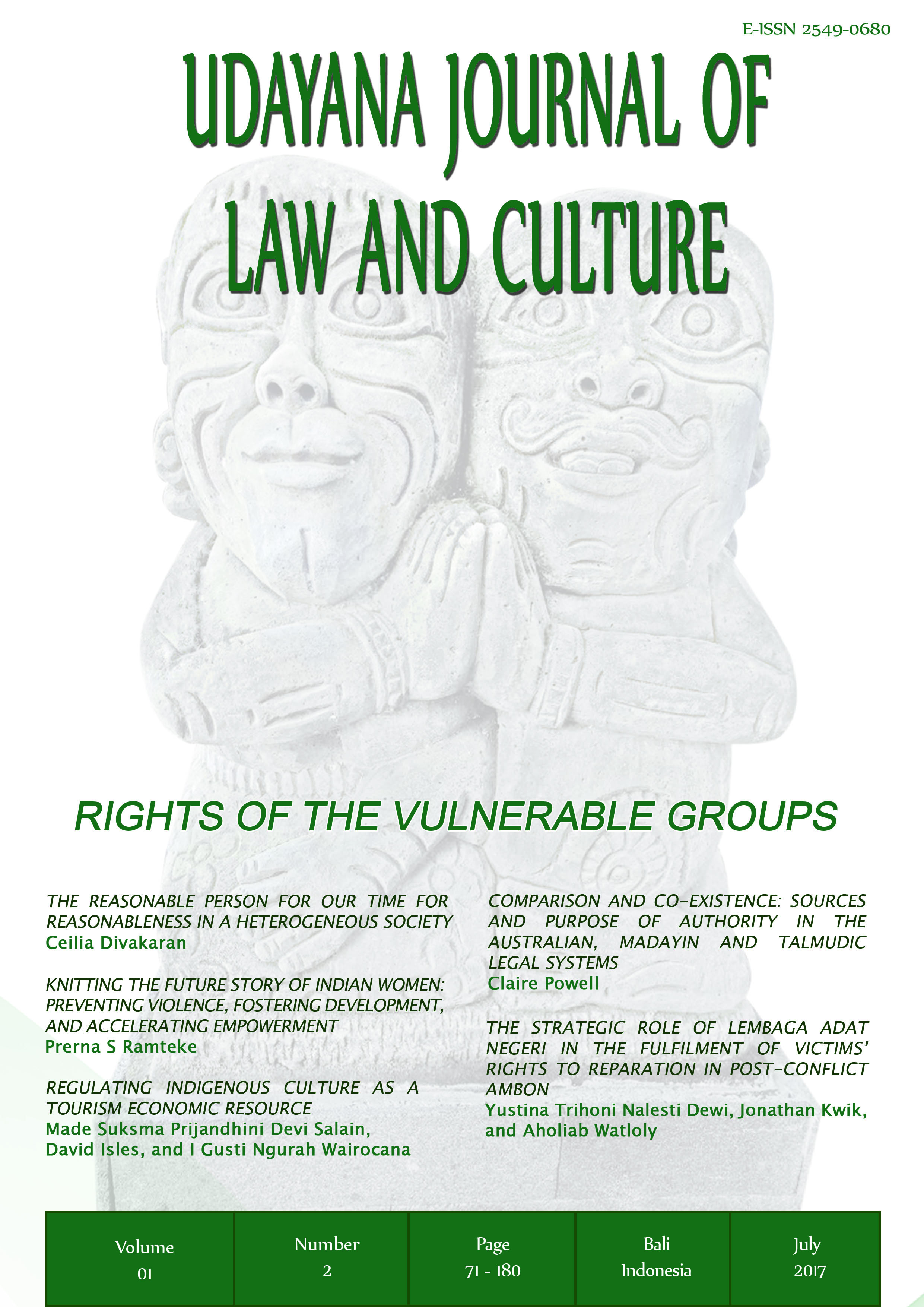Front-Matter
Abstract
We are very grateful to continue the first edition of Udayana Journal of Law and Culture (UJLC). This journal offers a distinctive legal insight that views the relationship between law and some other approaches, especially culture. This Volume 1 Number 2 chooses ‘Rights of the Vulnerable Groups” as the central topic as it presents some legal and societal problems faced by vulnerable groups. It has been generally understood that indigenous peoples and women are considered as vulnerable groups. This classification was made due to their fragile position in the society, in which, their basic rights cannot be properly exercised. From a legal point of view, the government has the responsibility to respect, protect, and fulfill their human rights. Three articles in this edition discuss the specific matters faced by indigenous peoples and traditional communities. The first and fourth article take the example of the legal order for Aborigines in Australia as well as the issue of justice and equality with regards to the law enforcement. The first article examines the meaning of equality and equal justice in the context of a multicultural society with a focus on Aboriginality of defendants before the courts while the fourth article compares Australian, Madayin and Talmudic laws in terms of their respective sources and purposes. The third article views how indigenous culture that practiced in Bali-Indonesia by its customary community needs an appropriate national and local regulations in order to enable the community to earn economic benefits generating from tourism activities. The situation of women, as the other category of a vulnerable group, is discussed in the second article. By using sociological approach to law, this writing focuses on how women in India are struggling to enjoy their rights as stipulated in relevant laws and regulations. The fifth article describes a unique approach to fulfilling rights of the victims to obtain reparation after a horizontal conflict in Ambon, Indonesia. The research found how Lembaga Adat Negeri as an institution that implements customary norms and tradition plays an effective role in determining the appropriate form of reparation for each victim or group of victims, as well as the best way to provide satisfaction. A special thanks is dedicated I Ketut Tika, I Made Rajeg, and Kayleigh Smith who kindly provided language editing and revision for UJLC. Lastly, we would like to express our great appreciation to all authors, submissioners, and Board of Editors who are scholars and legal professionals from Indonesia and abroad and also to the editorial members for their generous contribution in this edition. We expect this edition will encourage academicians and practitioners all over the world to contribute their articles to the UJLC for the upcoming edition.








